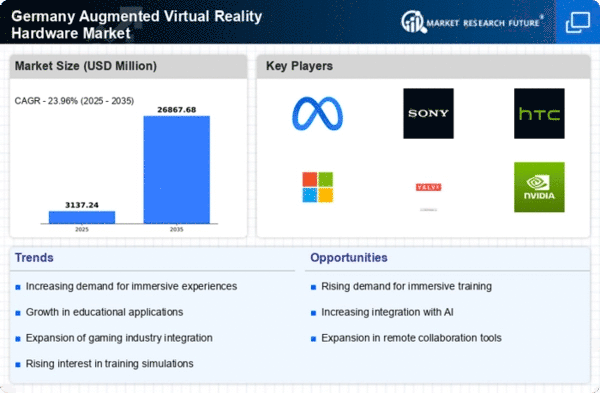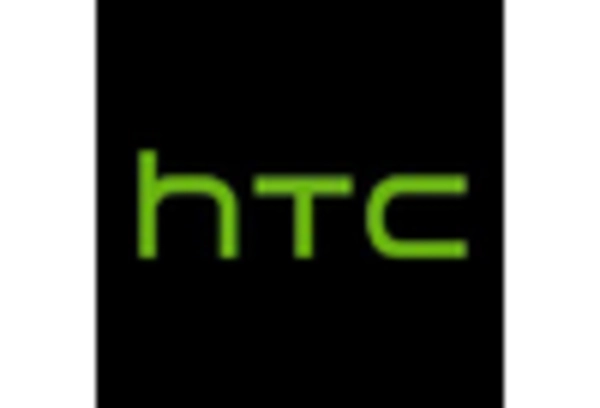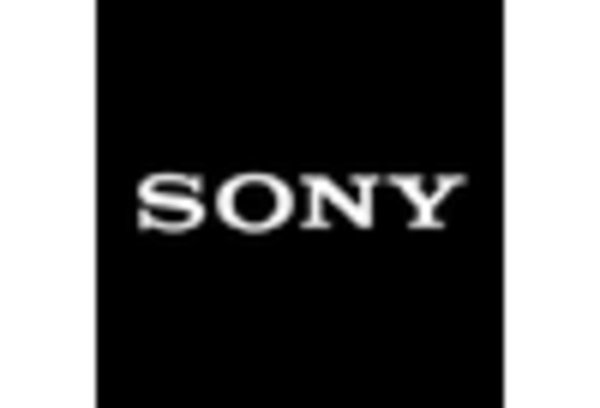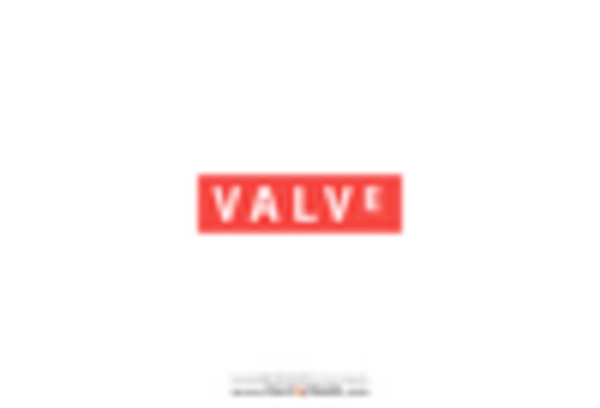Increased Investment in R&D
The augmented virtual-reality-hardware market in Germany is experiencing a surge in investment directed towards research and development. This trend is primarily driven by both private and public sectors recognizing the potential of augmented reality (AR) and virtual reality (VR) technologies. In 2025, it is estimated that R&D spending in this sector could reach approximately €1.5 billion, reflecting a growth of around 20% from previous years. Such investments are likely to foster innovation, leading to the development of more sophisticated hardware solutions. Furthermore, the collaboration between tech companies and academic institutions is expected to enhance the quality and functionality of products, thereby attracting more consumers and businesses to adopt these technologies. This increased focus on R&D is crucial for maintaining competitiveness in the rapidly evolving augmented virtual-reality-hardware market.
Expansion of Gaming Industry
The gaming industry in Germany is a significant driver of growth for the augmented virtual-reality-hardware market. With a robust gaming culture and a large consumer base, the demand for immersive gaming experiences is on the rise. In 2025, the revenue generated from VR gaming hardware is expected to exceed €500 million, indicating a growth rate of around 25% compared to previous years. This expansion is fueled by advancements in hardware capabilities, such as improved graphics and reduced latency, which enhance the overall gaming experience. Additionally, the increasing popularity of eSports and competitive gaming is likely to further propel the demand for high-quality VR hardware. As gamers seek more engaging and realistic experiences, the augmented virtual-reality-hardware market is poised for substantial growth.
Supportive Government Policies
Supportive government policies in Germany are playing a crucial role in fostering the growth of the augmented virtual-reality-hardware market. Initiatives aimed at promoting digital innovation and technology adoption are encouraging investments in AR and VR sectors. In 2025, government funding for technology startups in this field is expected to increase by around 15%, providing essential resources for development and commercialization. Additionally, regulatory frameworks that facilitate the integration of these technologies into various industries are likely to enhance market growth. By creating a conducive environment for innovation, the government is helping to position Germany as a leader in the augmented virtual-reality-hardware market, attracting both domestic and international players.
Integration with Healthcare Solutions
The integration of augmented virtual-reality-hardware into healthcare solutions is emerging as a pivotal driver in Germany. Medical professionals are increasingly utilizing AR and VR technologies for training, surgical simulations, and patient treatment. By 2025, the market for healthcare-related VR hardware is projected to grow by approximately 40%, reflecting the increasing recognition of its benefits in medical education and patient care. These technologies allow for realistic simulations that can enhance the skills of healthcare providers while also improving patient outcomes through innovative treatment options. The collaboration between tech companies and healthcare institutions is likely to accelerate the adoption of these solutions, thereby expanding the augmented virtual-reality-hardware market significantly.
Growing Demand in Education and Training
The augmented virtual-reality-hardware market is witnessing a notable increase in demand from the education and training sectors in Germany. Educational institutions are increasingly adopting AR and VR technologies to create immersive learning experiences. By 2025, it is projected that the market for educational VR hardware could grow by approximately 30%, driven by the need for innovative teaching methods. This trend is particularly evident in vocational training, where simulations can provide hands-on experience without the associated risks. The ability to visualize complex concepts through augmented reality is enhancing student engagement and retention. As educational institutions continue to invest in these technologies, the augmented virtual-reality-hardware market is likely to expand significantly, catering to a diverse range of learning environments.
















